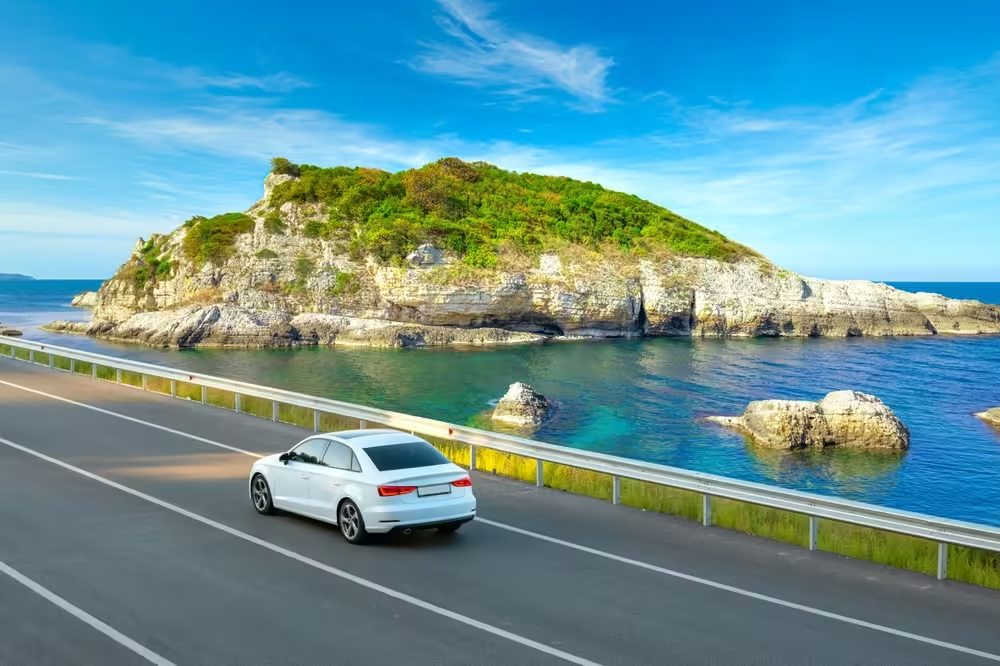Exchanging Driving Licenses in Spain: A Guide for EU and Non-EU Residents
Moving to a new country can be exciting, but it also comes with its own set of challenges. One important task for many expats in Spain is exchanging their foreign driving license for a Spanish one. This article breaks down the process for both EU and non-EU residents, ensuring you have all the information you need.
Who Needs to Exchange Their License?
If you’re a resident of Spain and plan to drive, you must exchange your foreign driving license for a Spanish one. The requirements differ based on whether you hold a license from an EU member state or a non-EU country.
EU Driving Licenses
For those holding a driving license from an EU country, the process is relatively straightforward. Spain recognizes EU driving licenses, so if you are a resident of Spain, you can drive with your EU license for up to two years after your residency. After this period, you must exchange it for a Spanish driving license.
Steps to Exchange Your EU Driving License
- Gather Required Documents:
- Your original EU driving license.
- A valid form of identification (such as a passport or national ID card).
- A recent passport-sized photo.
- Proof of residence in Spain (e.g., utility bill or rental agreement).
- Visit the Traffic Department (DGT):
- Schedule an appointment with the Dirección General de Tráfico (DGT) online or visit the nearest office.
- Submit your documents and complete the application form for exchanging your license.
- Pay the Fee:
- There is a small fee for processing your application, typically around €28.
- Receive Your Spanish License:
- Once your application is approved, you will receive a temporary license while your Spanish driving license is processed, which usually takes a few weeks.
Non-EU Driving Licenses: What You Need to Know
For residents holding a driving license from a non-EU country, the process can be more complicated. Spain does not automatically recognize these licenses, so you’ll need to follow a different set of steps.
Steps to Exchange Your Non-EU Driving License
- Check Eligibility:
- Not all non-EU countries have agreements with Spain for license exchanges. Check if your country is on the list of recognized countries. (Click here)
- Gather Required Documents:
- Your original non-EU driving license.
- A valid form of identification (passport or national ID card).
- A recent passport-sized photo.
- Proof of residency in Spain.
- An official translation of your license may be required.
- Complete a Medical Examination:
- A medical certificate confirming your fitness to drive is required for non-EU license holders. This can be obtained from a recognized medical center in Spain.
- Take a Driving Test:
- In many cases, you will need to pass both a theory and a practical driving test to obtain a Spanish driving license.
- Visit the DGT:
- As with EU licenses, schedule an appointment with the DGT, submit your documents, and fill out the necessary forms.
- Pay the Fee:
- Expect to pay a higher fee, as costs may vary depending on whether you need to take driving tests, usually around €94.
- Receive Your Spanish License:
- After passing the tests and processing your application, you’ll receive a temporary license until your official Spanish license arrives.
UK License: Post-Brexit Driving in Spain
There is a special agreement between the UK and Spain regarding driving licenses after Brexit.
Due to the withdrawal agreement, UK citizens can continue to drive in Spain using their UK driving license for up to three months after the date they become resident in Spain.
After three months, you will need to exchange your UK driving license for a Spanish one. The process for exchanging your license remains the same as for citizens of other EU countries.
This means they will need to:
- Translate their UK driving license into Spanish.
- Pass a medical examination.
- Submit their application, translated license, medical report, and passport to the local DGT office.
- Pass a theory test in Spanish.
- Pass a practical driving test.
The process is the same as for citizens of other non-EU countries as detailed above.
Special License Exchange Process for US Citizens in Spain
There is a special process for US citizens to exchange their driving license for a Spanish one.
While the general process is similar to that of non-EU citizens, there are some specific requirements and exemptions.
Here’s a brief overview:
Initial Exchange: US citizens who have resided in Spain for more than 185 days can exchange their US driver’s license for a Spanish one.
No Theory Test: One of the main advantages for US citizens is that they are generally exempt from taking the theory test.
Practical Test: However, they will still need to pass a practical driving test in Spanish.
Conclusion
Exchanging a driving license in Spain varies by nationality, but understanding the requirements can simplify the process. EU citizens can easily swap their licenses, while non-EU citizens must meet additional criteria, including medical examinations and practical tests. UK residents can drive with their UK licenses for three months after moving to Spain before needing to exchange them. US citizens benefit from being exempt from the theory test but still must pass the practical test. By knowing these essentials, all residents can navigate the road to obtaining a Spanish driving license with confidence.
To make an appointment with the DGT click here
Let us know what you think in the comments…
Thank you so much for your support! Reach out to us on Facebook and Instagram
For those interested in relocating to Spain we have created a Facebook Group How to Move to Spain to help you throughout the process. We will provide helpful free printables to keep you on track, online events to inform and support your journey, and above all create a community where you can ask questions and get advice. Please feel free to join!
Note
The information provided in this article is accurate as of the time of writing; however, it is always advisable to check with the Dirección General de Tráfico (DGT) for the latest updates, as requirements can change. Additionally, these are general guidelines, and specific conditions may vary based on factors such as age or individual circumstances.
Share this content:




Post Comment